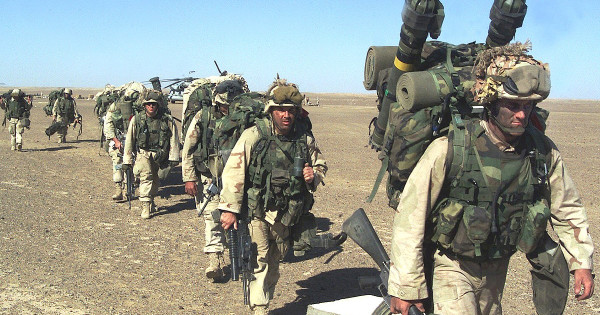

On the 17th anniversary of the beginning of the war in Afghanistan, one American congressman has called for its end.
Rep. Ruben Gallego (D-Ariz.) said in a statement on Sunday that “American troops should come home” from Afghanistan, since our current course there is “not in our national interest.”
The U.S. presence in Afghanistan began on Oct. 7, 2001 shortly after the Sept. 11 terrorist attacks.
“Our objectives following that attack were to destroy Al-Qaeda, kill Osama bin Laden, and prevent a recurrence of an ungoverned space in Afghanistan that allowed for terrorists to plot and plan attacks on Americans and our allies. We accomplished all of those objectives years ago.”
Although Gallego, a Marine veteran of the Iraq War, seemed to push for a full withdrawal of American troops, he cautioned that “we must do so responsibly.” A responsible exit, he wrote, would mean continuing to provide security assistance and diplomatic engagement to the Afghan government, and aggressively push for a peace deal.
All of which seems to undercut the “American troops should come home” part, since the U.S. is currently doing all of those things and yet the war continues unabated. Still, his statement notes that there are roughly 14,000 coalition troops in Afghanistan who have “no reason” to “stay there indefinitely.”
Most, however, are providing support to Afghan forces and not engaged in direct combat.
Still, a statement like this is noteworthy, since many in Congress have not pushed in any meaningful war for America’s longest war to come to a close.
Read the full statement below:
Today is the 17th anniversary of the invasion of Afghanistan. Looking back at the many years of fighting in our longest war, at the successes and setbacks, and the death or wounding of thousands of Americans, allied servicemen and women, and our Afghan friends, it’s clear that continuing on the current course is not in our national interest. American troops should come home.
Our presence in Afghanistan began after the most heinous terrorist attack in world history – the attacks of September 11th, 2001. Our objectives following that attack were to destroy Al-Qaeda, kill Osama bin Laden, and prevent a recurrence of an ungoverned space in Afghanistan that allowed for terrorists to plot and plan attacks on Americans and our allies.
We accomplished all of those objectives years ago. Al-Qaeda is in shambles, Osama bin Laden is dead, and Afghanistan is no longer a place where threats to the American homeland can foment. With our objectives accomplished, there is no reason why the vast majority of the 14,000 Coalition troops in Afghanistan should stay there indefinitely.
While it is time to leave, we must do so responsibly. Our security assistance to the Afghan government, armed forces, and national police must continue to ensure that the Taliban does not return to power and that terrorists do not rebuild the base of operations they maintained prior to 2001. Our diplomatic engagement to support Afghanistan’s security and governance will only grow in importance after most American troops leave. And the Secretary of State should aggressively push for a peace deal between all parties in Afghanistan.
Over the past 17 years, almost 25,000 Americans have been killed or wounded in Afghanistan. Many thousands more bear the mental and emotional scars of combat. We must remember their sacrifice as we seek the best interests of our country, which involves the return of their comrades still in Afghanistan to their friends, family, and a grateful nation.